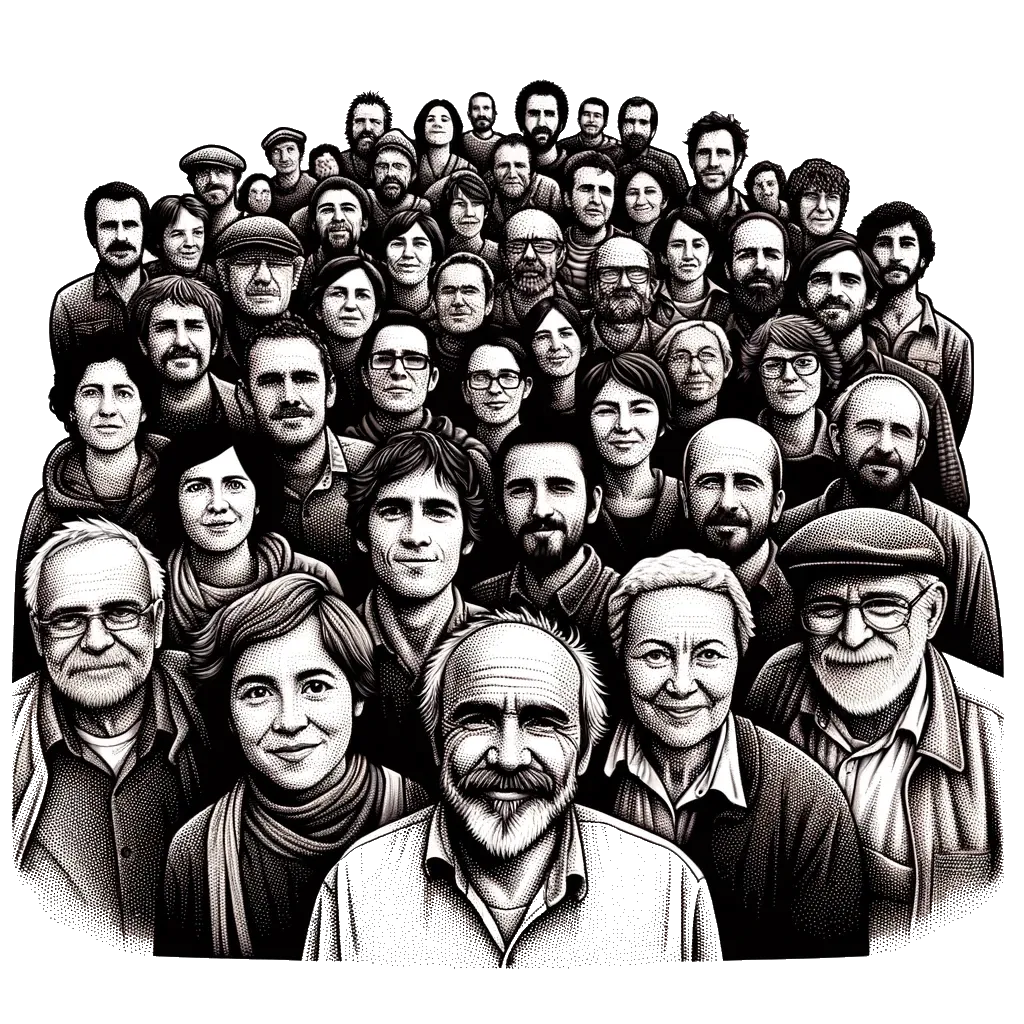Lagun-Aro is a social welfare organization within Mondragon, which is a federation of worker cooperatives based on the principles of cooperation, participation, social responsibility, and innovation. Founded in the mid-20th century by a Catholic priest named José María Arizmendiarrieta, Mondragon has grown from a single cooperative academy to a global network of over 100 cooperatives across various sectors, including finance, industry, retail, and knowledge.
Mondragon is the largest cooperative in the world, located in the Basque region of Spain.
Lagun-Aro plays a critical role in the social security system for the workers within the Mondragon cooperatives. The success of Lagun-Aro and the broader Mondragon cooperative model lies in its ability to balance economic efficiency with social equity. By prioritizing the welfare of its members, Lagun-Aro exemplifies the potential of cooperative enterprises to create sustainable and equitable economic systems.
Unlike conventional social security systems, Lagun-Aro is designed to provide a comprehensive safety net for cooperative members.
The Lagun-Aro system is tailored to the cooperative model, emphasizing solidarity and mutual support among members. Key features and functions of Lagun-Aro include:
- Healthcare Benefits: Offering healthcare services and support to cooperative members and their families, ensuring access to medical care.
- Pension Plans: Managing pension funds and plans to provide for members during retirement, reflecting the cooperative's commitment to long-term welfare and sustainability.
- Unemployment Benefits: Providing financial support to members during periods of unemployment, ensuring stability and reducing the economic impact of job loss.
- Disability and Survivor Benefits: Offering assistance to members who are unable to work due to disability and providing support to the families of deceased members.
"Lagun-Aro" in the Basque language translates literally to "Circle of Friends" in English.
The term reflects the cooperative and community-oriented ethos that is a hallmark of the Mondragon Cooperative and its associated entities, including Lagun-Aro. This name embodies the principles of solidarity, mutual support, and collective welfare that underpin the cooperative movement, emphasizing the importance of building and maintaining strong, supportive relationships among members for mutual benefit.
An EPSV, or "Entidad de Previsión Social Voluntaria," translates to Voluntary Social Welfare Entity in English.
An EPSV is a specific form of savings institution in the Basque Country and Navarre regions of Spain, distinct from the more general Spanish financial or insurance entities. The primary purpose of an EPSV is to provide members with additional social welfare benefits, complementing those provided by the public social security system. These benefits can include pensions, healthcare, and other forms of social welfare, focusing on the well-being of its members.
This model differs from typical corporate structures or insurance companies by focusing on the social welfare of its members rather than on profit.
Lagun-Aro has attracted international attention from policymakers, economists, and social scientists interested in alternative forms of economic organization that can address the challenges of inequality and worker disenfranchisement in global capitalism.
Why is the Lagun-Aro System Unique?
Lagun-Aro is a key component of the Mondragon Cooperative Corporation (MCC), one of the world's largest and most successful cooperative movements, headquartered in the Basque region of Spain. Established in the mid-20th century, MCC encompasses a wide array of businesses and educational institutions, with Lagun-Aro functioning as its social security system. Here are several factors that contribute to the uniqueness of Lagun-Aro within both the Mondragon framework and the broader context of social security systems:
- Cooperative Structure: Unlike conventional social security systems which are typically government-run, Lagun-Aro operates within a cooperative framework. This means it is owned and managed by the workers and members of the Mondragon cooperatives. This model emphasizes mutual aid, solidarity, and democratic participation in the management of social welfare benefits.
- Integrated Social Security System: Lagun-Aro provides a comprehensive range of social security benefits to its members, including pension schemes, healthcare, unemployment insurance, and support during sickness and maternity leave. Its integration with the cooperative's employment structure allows for a more personalized and responsive approach to member needs, compared to traditional state-run systems.
- Sustainability and Solvency: The system is designed to be financially sustainable, with contributions made by both the cooperatives (as employers) and their worker-members. This self-financed approach helps ensure that the system remains solvent and can adapt to changing economic conditions without relying on government funding.
- Solidarity and Redistribution: A core principle of Lagun-Aro is the redistribution of resources among the cooperatives and their members. This is aimed at reducing inequalities and supporting members and cooperatives in times of need. The system's focus on solidarity ensures that more successful cooperatives support those that are struggling, fostering a sense of community and mutual responsibility.
- Adaptability and Resilience: Lagun-Aro, and the Mondragon Cooperative Corporation as a whole, have demonstrated a remarkable capacity for resilience and adaptability in the face of economic fluctuations. The cooperative's social security system plays a crucial role in this, as it provides a safety net that helps members navigate through economic downturns and maintains the stability of the cooperatives.
- Educational and Social Integration: Beyond offering financial benefits, Lagun-Aro is also integrated with Mondragon's educational and social initiatives. This holistic approach ensures that members are not only financially supported but also have access to training, education, and social services, contributing to the overall well-being and development of the cooperative community.
Lagun-Aro exemplifies how cooperative principles can be applied to social security.
Lagun-Aro offers a model that is both innovative and effective in promoting worker welfare and cooperative sustainability. Its success challenges conventional approaches to social security and underscores the potential of cooperative models in addressing contemporary economic and social challenges.
Historical Notes:
Founding and Early Years:
In 1956, Father José María Arizmendiarrieta blessed the foundation stone of Ulgor, a company founded by Luis Usatorre, Jesús Larrañaga, Alfonso Gorroñogoitia, José María Ormaechea, and Javier Ortubay. Ulgor’s first production plant was established in 1959, marking the beginning of the Mondragon Experience. The Escuela Profesional (now Mondragon Eskola Politeknikoa) played a crucial role in vocational training and education during this period.
Caja Laboral Popular:
In 1959, Father José María Arizmendiarrieta invented Caja Laboral Popular, a financial institution. Unlike grassroots cooperatives, Caja Laboral had a mixed composition of social bodies, including both worker-members and representatives from associate cooperatives. This structure allowed for broader representation and influence.
Lagun-Aro: Voluntary Mutual Benefit Organization:
In 1958, due to the exclusion of cooperative members from the General Social Security System, Lagun-Aro was established. Lagun-Aro serves as a Voluntary Mutual Benefit Organization, providing protection and coverage for associated cooperatives. It ensures assistance in areas such as healthcare, security, and social benefits.
Evolution and Expansion:
Over time, Lagun-Aro evolved into a second-degree cooperative. The Bergara-based cooperative Doiki joined the Mondragon Group. Additionally, the Ikerlan Research Centre was set up as part of the cooperative’s expansion.
Current Role:
Lagun-Aro continues to play a crucial role within the Mondragon federation. During economic stability, it provides welfare insurance. In times of crisis, it takes on additional responsibility for the welfare of workers within the federation.



